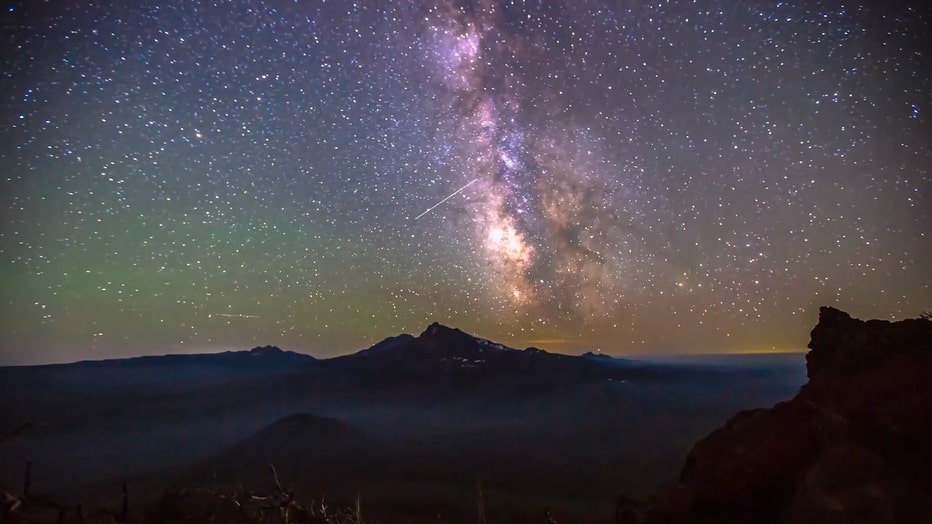Stunning time-lapse shows Perseids meteors streak across night sky
BLACK CRATER, Ore. - Stunning time-lapse footage captured the Perseids meteor shower over a volcano in Oregon on Aug. 7 and it literally looks like a scene from a fantasy movie.
The beautiful footage, shot by Mike Cohea, shows the summit of Oregon’s Black Crater volcano as meteors can be seen streaking across the starry sky.
NASA said the 2021 Perseids meteor shower was set to peak this week.
"This year, even relatively faint meteors should be visible through clear skies from a dark location as the bright Moon will be mostly absent," the space agency said.

Freeze frame of time-lapse video showing the Perseids meteor shower over Oregon volcano.
RELATED: Perseids meteor shower to dazzle in July, August — here’s how to watch
The Perseids are active every year from July 14 to August 24, but the meteor shower will peak between midnight and dawn on August 11, 12 and 13.
Up to 100 meteors will pierce Earth’s atmosphere every hour, traveling at speeds of up to 37 miles per second. The speed at which the meteors travel creates resistance with Earth’s atmospheric particles causing the meteors to burn in bright balls of fire in the night sky.
The Perseids appear to come from the region of the Perseus constellation, but they don’t actually come from the constellation.
As the 109P/Swift-Tuttle comet orbits the sun, it leaves behind a trail of debris that Earth passes once a year.
RELATED: Virgin Galactic launches Richard Branson, 5 others into space
When Earth passes through 109P/Swift-Tuttle’s debris, particles from the comet come into contact with Earth’s atmosphere, creating a meteor shower.
109P/Swift-Tuttle was discovered in 1862 by Lewis Swift and Horace Tuttle and measures around 16 miles across.
Storyful and Skyler Rivera contributed to this report.

